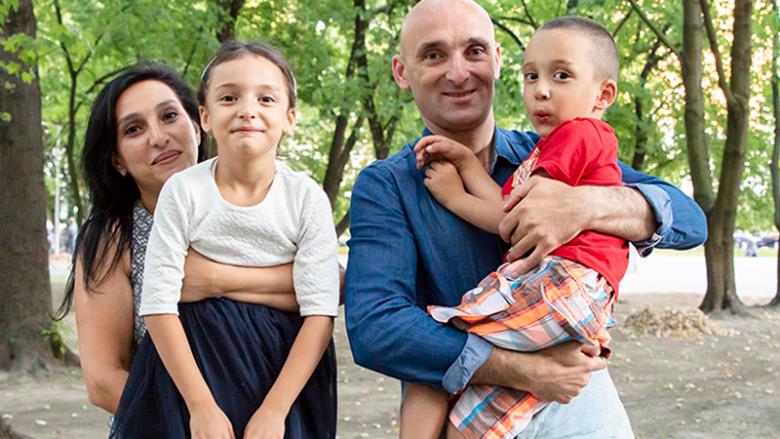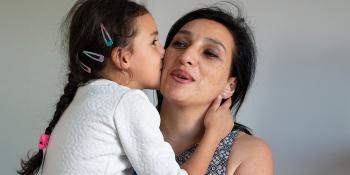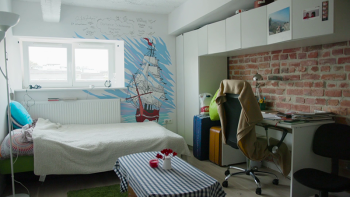Who can afford rising rents?
”The toys will go over here! Over on the window sill,” Esita says. The little girl flits, sometimes twirls, from room to room, scoping out what is soon to be her new home. Nothing captures her imagination more than the room overlooking a park and playground, the one she will share with her brother, Edvard.
Their mom and dad, Asia and Edik, also take in the freshly painted white walls and shiny wood floors of the renovated Warsaw apartment. They direct movers, hauling in the orange sofa, chest of drawers and other furniture. Mostly, they watch their children. “When the children have it good, the parents have it good,” Edik says. “When they are happy, we are happy.”
Not long ago, this happiness seemed all too elusive. Asia and Edik are refugees — she is from Tbilisi, Georgia, he from Grozny, Chechnya, Russia. In Poland, they found each other but have had an especially difficult time finding decent, affordable housing. Already, the couple has had to move no fewer than seven times in as many years when landlords either abruptly upped the rent or turned them out in favor of tenants who could pay more. This time feels different, Edik says.
Esita is exploring her future home in Warsaw. Her parents were able to provide a safe home for her thanks to Habitat’s project addressing unaffordable housing market in Poland.
This time is different. It is different because of Habitat Poland’s advocacy efforts — efforts that bring together national and local governments, private and public landlords, nonprofits, and the Polish people themselves to help families struggling in a tight and expensive housing market. This work is part of Habitat’s Solid Ground global advocacy campaign.
Seeking affordable housing solutions for the country’s most vulnerable groups, Habitat Poland is participating in HomeLab, a pilot project funded through a European Union grant. The pilot creates an agency run by Habitat Poland in partnership with the City of Warsaw and uses housing stock from private landlords and the city. The agency also provides support from specialists in social integration and employment and navigates other issues that may arise.

Asia and Edik found their new home in Poland. With the help from Habitat for Humanity they were able to find a stable and affordable place to rent in Warsaw.
The agency worked with Asia and Edik. The family’s new apartment is owned by the City of Warsaw and was renovated by Habitat Poland. The agency identified Asia and Edik as good tenants and negotiated rent that they can comfortably pay with the money that Edik makes working in construction and Asia makes as a preschool teacher. Habitat Poland will continue to manage the property.
The agency eases the financial and bureaucratic burdens of the City of Warsaw, which wants to renovate even more apartments to help even more people. “Together, with Habitat, we want to expand in the future, protecting those vulnerable people who are not able to find their place on the market themselves,” says Beata Wrońska-Freudenheim, deputy director of Warsaw’s Housing Policy Bureau.
More stories from Poland


